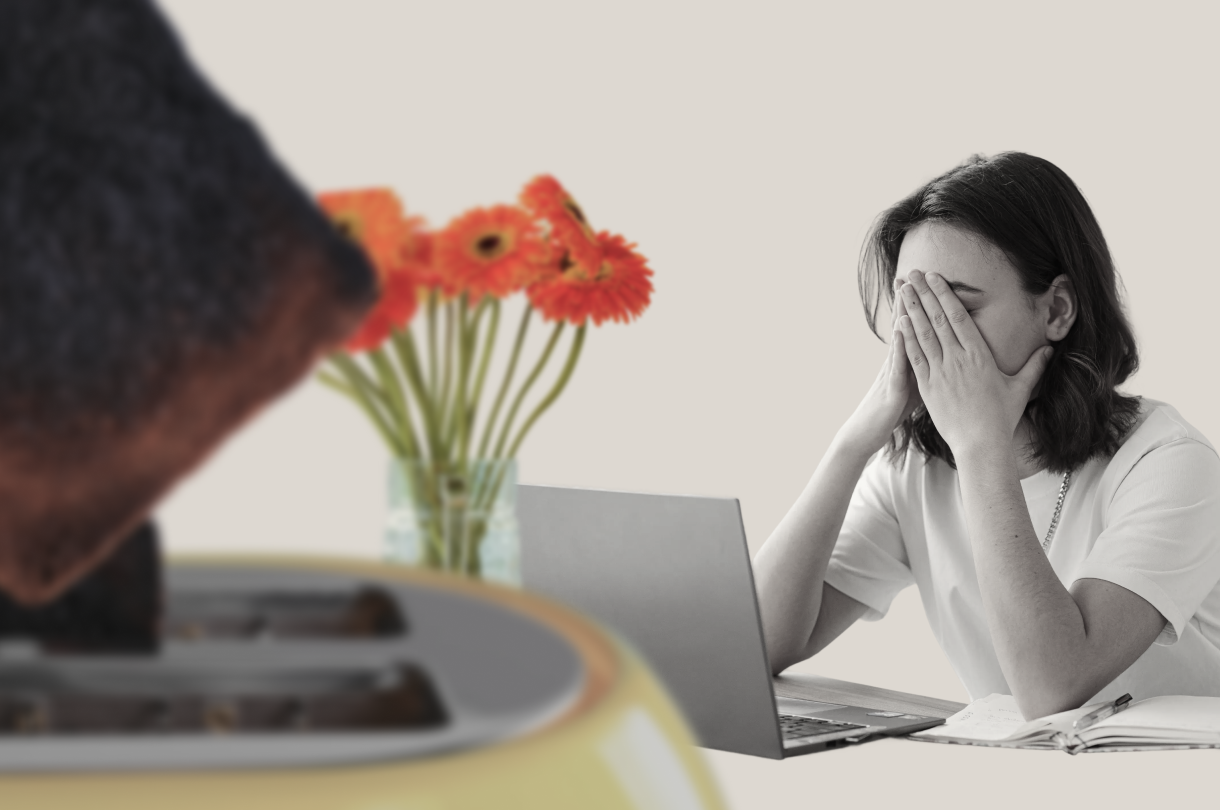5-minute read
These are not easy times. We're all still navigating a global pandemic, the war in Ukraine, racial violence, mass shootings, and supply chain issues, and now we're adding inflation and an impending recession to this list.
No wonder employees are asking for mental health days, stress and resilience management activities, and more general coverage of mental health services.
Investing in your employees' emotional wellbeing pays off, leading to 25% fewer missed work days and a 24% increase in productivity. Here are 10 mental health tips to share with your organization to help them boost their mental health—and for you to put into practice, too.
Filter out the bad
We're rarely without our technology. Whether it’s working from home on your computer or listening to the latest podcast or webinar on your phone, the internet—and the news—is hard to escape. In fact, looking at “bad” news has become so associated with negative feelings that it even has its own name: doomscrolling.
To put a pause on news-related negativity, use apps to impose limits on phone use. On the computer, programs like Freedom or Cold Turkey can block specific sites for preordained amounts of time.
You can also limit your social media use, and commit to keeping your phone outside of your bedroom.
Volunteer
One of the best ways to boost one’s own mental health is to help someone else.
Research shows that people who volunteer feel better in general than those who didn’t. Even further, those who volunteer at least once a month identify with having better mental health, as opposed to those who didn’t volunteer as frequently.
Although volunteering may look different because of the pandemic that is still impacting all our lives, there are still worthwhile ways to help. Check with local mental health organizations to see how you can pitch in.
Be mindful
Mindfulness can be hugely beneficial in lowering workplace anxiety and depression. Wondering exactly how to do this? Regular mediation can help retrain your brain to respond to stress more positively.
Spring Health offers a library of clinically-validated digital exercises called Moments. These on-demand exercises cover over 120 topics, including mindfulness, anxiety, sleep, burnout, and parenting. Based in cognitive behavioral therapy, the exercises can provide immediate relief while helping to create healthy habits—just by taking a few moments out of your day.
Practice is key to harnessing the benefits of mindfulness. Whether aided by an app, a book, or a group practice, a mindful state centers on the present. A good place to start is by focusing on breathing, and letting the mind sit in a state of rest.
Practice healthy routines
Perhaps we’ve all gotten a bit too comfortable with the perks of remote work—throwing on a nice shirt over a pair of sweats is so easy. But, getting into ruts around home, which has suddenly converted into an office, school, gym, and more, can also make us more lethargic, physically and mentally.
To energize your mind and day, try dressing as if going to the office, make your bed, and clean up messes. A change in routine can reinvigorate other areas in life.
Reinvent office space
With so much being done from home, having a clear delineation between work and home life is essential. One natural way to do this is to create a physical space that is only for work.
A separate room (with a door to close at the end of the day) is ideal, but there are other ways to get your mind into work mode. Try setting out specific objects (photos, a potted plant, a placemat) to designate when a kitchen table turns into a work one.
Get moving (outside)
Getting the mental health benefits of exercise is as easy as a 10 minute walk. Want to boost these benefits even more? Take your exercise outdoors, where the natural setting can lower stress.
Connect, meaningfully
Even though our world continues to be increasingly virtual, there are still ways to make and maintain real relationships. Talk to friends and family, work on a project in real time with others, or take a new class, all virtually.
There are also programs that connect potential pen pals with each other. Contact local assisted living facilities to see if any of its elderly residents want a virtual visit or letter.
Take breaks
According to a Spring Health survey, 76% of U.S. workers experienced burnout in the past year. With burnout prevalent in organizations around the globe, taking a mental health day even before you really need it has become more important than ever.
If burnout is around the corner, taking a step back from work can help to de-stress. Watch a movie, take a long walk, or do whatever helps you to relax and refresh.
Create a mental healthcare plan
In these continually uncertain times, the value of a supportive mental healthcare benefit has never been more clear. With so much information available online, now is a great time to do a bit of exploring and see what mental health options are available. Whether it be talk therapy or meditation sessions, find the solution with proven clinical outcomes that can help your employees feel better, faster.
Start at work
An employer has a unique ability to help improve the mental health of the entire organization. Especially in this time where there is so much transition, the leadership team can provide stability and a place of connection for their staff.
Offer events where employees can genuinely relax and connect (think virtual costume party or a game afternoon), as well as programs where employees can access different mental health treatments.
Most importantly, offer a solution that provides fast access to the entire family. Because when one member of the family is struggling, everyone else is impacted too.
Learn more about expanded access to mental healthcare that's precise, personal, and proven.









.png)





.png)
.png)
.png)
.png)



















